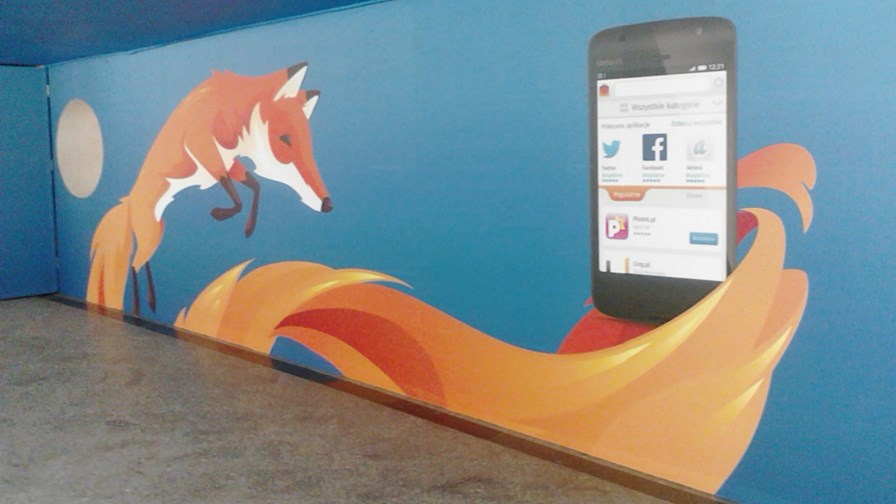Boot to Gecko becomes reboot to IoT as Mozilla refocuses its open source Web OS effort

via Flickr © Wojciech Szczęsny (CC BY-SA 2.0)
- Mozilla moves Firefox OS off the smartphone
- Targets IoT applications
- Invites developers in to contribute
Mozilla has added some flesh to the bones of an announcement it made when it canned its telco-friendly mobile OS project a couple of months ago. (see - Mozilla gives up on Firefox OS and prepares to chase other markets). It’s refocusing on IoT’ish projects for the technology - and it wants the developer community to move in and give it support.
Mozilla’s Firefox OS was based on an open source, Web-based effort called Boot to Gecko (B2G), but after plugging away for a couple of years to develop cheap smartphones to operate in a telco ecosystem, the grim scale economics of Android just proved too much - the Firefox OS wasn’t getting traction and handset pricing had become a non-issue.
But there’s more you can do with a Web-based OS than just build a boring old smartphone around it. Mozilla said it was turning its attention to the emerging IoT and could see many places where a version of Boot to Gecko might play in future.
To this end it has now announced a fixed schedule for phasing out support for Firefox OS - its ‘end-of-life’ plan, as the jargon has it.
So what about this cunning IoT plan? When a technology effort suddenly looks threadbare you can always reboot to IoT where the opportunities have the advantage of being vague enough (still) to stave off detailed criticism. But in this case the move seems to hold water. The organisation says it’s working on a ‘Product Innovation Process’ to identify the products or areas they would like to explore.
There is the smart TV product target of course, an area Google (Alphabet) famously tapped with its HTML dongle, Chromecast, which enables users to ‘cast’ content direct from source via the Internet and WiFi, onto the TV screen using a gadget like a PC or a smartphone to do the selecting. There must be plenty of scope to use these sorts of capabilities across different objects and in more innovative ways.
To this end Mozilla says it’s already deeply involved in the Smart TV area and points to its experience in working with Panasonic on its smart TV products as a pointer to the future.
It is developing a ‘personal web of things’ and then, allied to this, it has a speech project called Vaani which is a foray into artificial intelligence. The idea seems to be to develop a domestic version of Apple’s Siri (say) so that on voice command, questions can be answered (“Is the window open upstairs?”) and home automation instructions given (“Then open it”). That sort of thing. Everyone will soon be able to imagine they live in Downton Abbey with servants to do their bidding.
Well, that’s the hope - Mozilla is counting on it being able to attract enthusiastic developers into the open source fold to make some of it come true.
Email Newsletters
Sign up to receive TelecomTV's top news and videos, plus exclusive subscriber-only content direct to your inbox.




